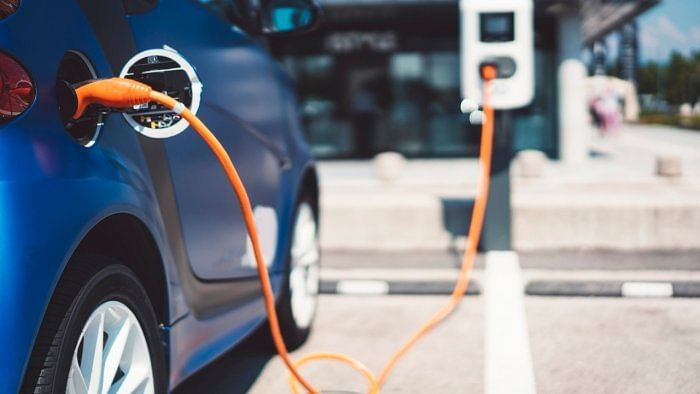
Representative image of EV.
Credit: iStock Photo
Bengaluru: While electric vehicles (EVs) are touted as a key solution to Bengaluru’s rising air pollution, a new study by the Centre for Study of Science, Technology, and Policy (CSTEP) has projected that the city will need a dramatic increase in public EV charging guns — from 1,400 currently to 36,000 by 2030.
At least two studies, including the CSTEP report, have identified the transport sector as contributing 39 per cent to Bengaluru’s air pollution, especially in particulate matter (PM2.5), larger particles, and harmful gases. With vehicle stock in the city set to grow by 1.5 times by 2030, EVs are expected to account for 23.4 lakh out of an estimated 90 lakh vehicles on the road.
While both central and state governments advocate for EV adoption to reduce emissions, limited charging infrastructure remains a key barrier, leading to “range anxiety” among potential EV users.
Consumer surveys on EV perceptions and charging habits informed the study’s infrastructure projections. “An estimated seven lakh EV charger guns will be needed by 2030, including 36,000 public charging guns, with 80 per cent of demand expected from two-wheelers,” the report noted.
The study also assessed potential sites for charging infrastructure across Regional Transport Office (RTO) zones, identifying 400 potential sites in IT parks, metro stations, fuel stations, and malls across nine zones. “Establishing these stations will require 141 acres, roughly equivalent to the land needed for 700 petrol pumps,” it said.
In addition, the report estimated that energy demand from EV charging would range from 3.3 to 4.1 billion units, comprising 7%-9% of Bengaluru’s annual energy requirement by 2030. Peak load from EV charging could rise to 1.2 GW from 0.096 GW in 2023.
While overnight charging, currently favoured by EV owners, exerts minimal pressure on the power grid, the study recommended promoting daytime charging at workplaces or public stations to increase the use of renewable energy in EV charging.